Brain Practice Answers
January 2021
Keep up those challenges every day!
Here are the answers to the January 2021 Brain Practice
Tennis Challenge
Susan and Lisa decided to play tennis against each other.
They each bet $1 on each game they played. Susan won three bets and Lisa won $5.
How many games did they play?
Answer: Eleven. Because Lisa lost three games to Susan, she had lost $3 ($1 per game). So, she had to win back that $3 with three more games, then win another five games to win $5.
Emoji Challenge.
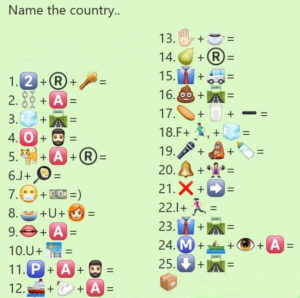
The Bridge and Torch Challenge
This famous river crossing problem is known as the “bridge and torch” puzzle.
Four people are crossing a bridge at night, so they all need a torch—but they just have one that only lasts 15 minutes.
Alice can cross in one minute, Ben in two minutes, Cindy in five minutes and Don in eight minutes.
No more than two people can cross at a time; and when two cross, they have to go at the slower person’s pace.
How do they get across in 15 minutes?
Answer: Alice and Ben cross first in two minutes, and Alice crosses back alone with the torch in one minute.
Then the two slowest people, Cindy and Don, cross in eight minutes.
Ben returns in two minutes, and Alice and Ben return in two minutes.
They just made it in 15 minutes exactly.
Nonverbal Challenge
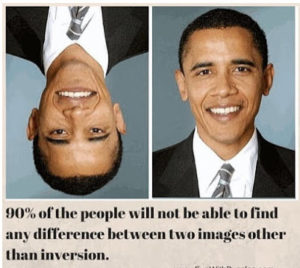
Now look at the left image inverted.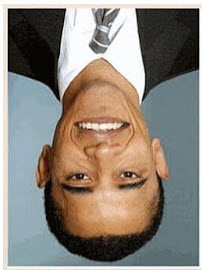
.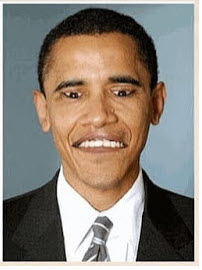
Was this a surprise? The mouth and eyes don’t look ‘right’ at all!
The simplest explanation is that we don’t actually process a face one piece at a time. Humans read a face as a whole. We learn from being babies to ‘read’ a face, the physical features and emotions, and when the face is upside down, it creates a whole new problem for the brain.
Rather than looking at separate parts of the face before assembling them together in the brain to make a face, when the face is not upright, it makes it much harder to realise what is going on. This also explains why people of individual ethnicities have absolute clarity for people of their own culture, while others not of that culture may struggle to determine facial differences. Dr Lamont says we have an heuristic for faces which means at a glance we may not have spotted what was wrong in this picture.
The meaning of heuristic
Maths Challenge
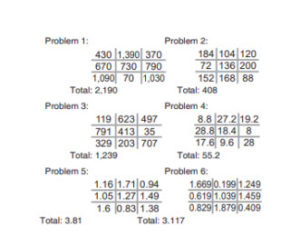
Can you solve these?
- I am a word of 5 letters.
Everybody eats me.
If you remove my first letter, I will be a form of energy
If you remove my first 2 letters, I will be needed for living
If you remove my first 3 letter, I will be a preposition and near you
If you remove my 4 first letters, I will be a drink for you.
What is the word? - A man is in his car.
He sees three doors.
A yellow one, a blue one & a red one.Which door does he go through first? The car door. - Your parents have six daughters including you and each daughter has one brother.
How many people are in the family?ANSWER: Nine. Two parents, six daughters and one son.
Need more practice?
Healthy Memory Workout is an eBook full of puzzles to challenge your brain
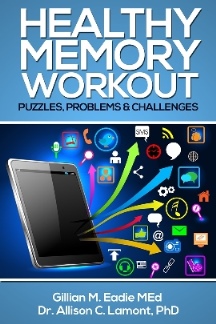
Want more tips and strategies?
Puzzle Secrets is a companion eBook full of strategies and tips for solving brain challenges.
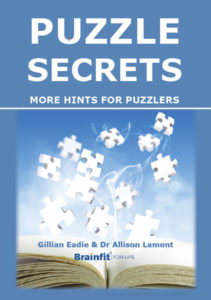
eBook – only $9.99NZD
